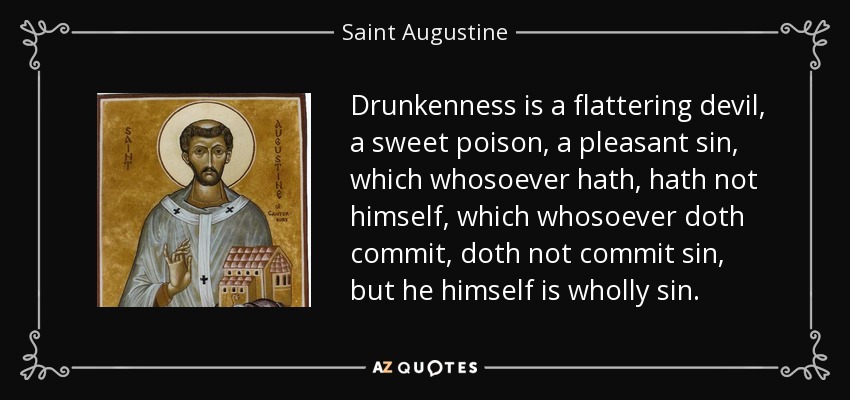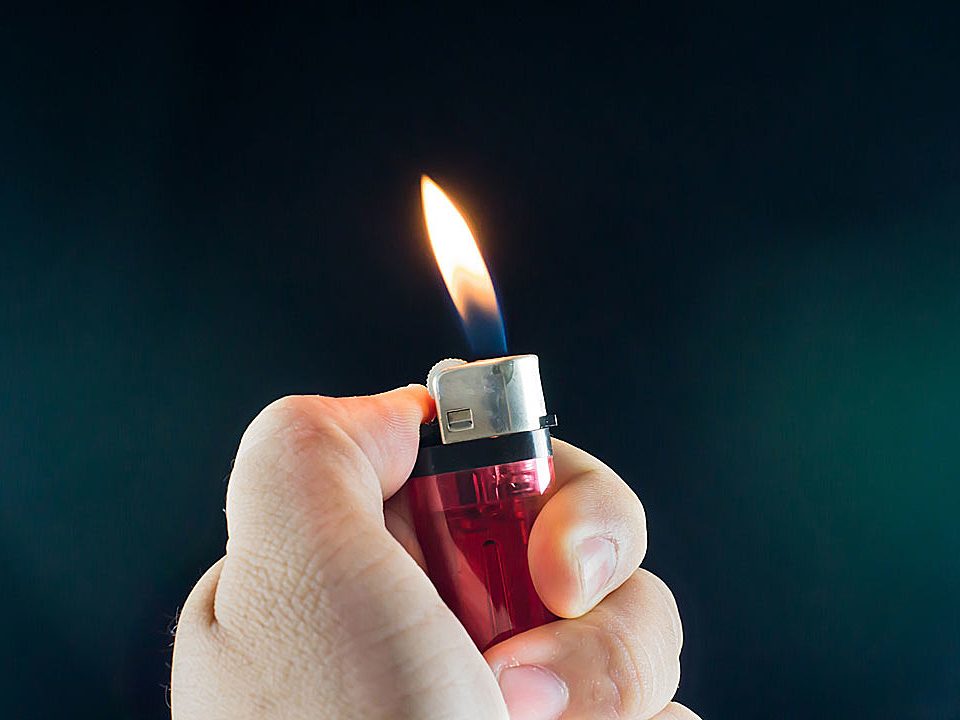Is Getting Drunk a Mortal Sin?
Is Getting Drunk a Mortal Sin?

 On a Saturday evening during the summer of 2001, my three college-age children invited several of their friends over at our house for a party. They started the evening in the kitchen eating pizza and then moved the party downstairs to our family room.
On a Saturday evening during the summer of 2001, my three college-age children invited several of their friends over at our house for a party. They started the evening in the kitchen eating pizza and then moved the party downstairs to our family room.
The friends were from two large local Catholic families. Georgette and I were friends with their parents, so later in the evening, the parents stopped by our house to join the party. I stayed upstairs until I finished a project I was working on. I ended up going downstairs at around 12:30 a.m.
When I joined the party, there was a lively discussion going on between the parents and the children. They had gone back and forth, giving their opinions about whether they thought it was a mortal sin to get drunk. By the time I arrived, they had all agreed that although it was sinful to drink to excess, the sin did not rise to the level of a mortal sin.
When I entered the room, one of the parents filled me in about what was going on and asked what I thought. I responded by saying, “Of course it’s a mortal sin!”
I explained that when people drink to excess, they deprive themselves of the ability to think and behave rationally. Because they have given up their ability to think and behave rationally, they become a danger to themselves and to the other people they come into contact with.
While my children and our friends agreed with me that people who drink too much lose their ability to think and behave rationally, they refused to agree with me that getting drunk is a mortal sin. They insisted that I back up my position with proof.
All I could tell them was that when I was a senior in college, I read several books about the Catholic faith. One of the books stated that getting drunk was a mortal sin. I told them that the book was written during the 1950s, before the “anything goes” culture of the 1960s changed the way a lot of Americans viewed sex, drugs, and alcohol.
While I was not able to back up my claim with proof, I later did some research and discovered that one of the great Doctors of the Church, Saint Thomas Aquinas, discussed that very topic in his Summa Theologica (also known as “Summa”). Aquinas wrote the Summa between the years 1265 – 1274.
The primary reason that Aquinas wrote the Summa was so that it could be used as an instructional guide for theology students. The Summa included all the main theological teachings of the Catholic Church and the reasoning behind the teachings.
Here’s what Aquinas said about drinking to excess:
Someone may be well aware that he is drinking immoderately and thereby getting drunk, and yet he would rather be drunk than abstain from drink. Such a man is the one who is properly speaking called a drunkard [in contrast to persons who drink too much without knowing it, or get drunk without expecting it], because moral character comes not from things that occur accidentally and aside from the intention, but from that which is directly intended. In this way drunkenness is a mortal sin, because then a man willingly and knowingly deprives himself of the use of reason, that which he performs virtuous deeds and avoids sin, and thus he sins mortally by running the risk of committing sin. For Ambrose says in the book On the Patriarchs: “We say that one should avoid drunkenness, since it keeps us from avoiding grievous sins. For the things we avoid when sober, we unknowingly commit through drunkenness.” Therefore drunkenness, speaking per se, is a mortal sin. (Secunda Secundae, q. 150, a. 2)
The Pocket Catholic Dictionary defines a “mortal sin” as follows:
An actual sin that destroys sanctifying grace and causes the supernatural death of the soul. Mortal sin is a turning away from God because of a seriously inordinate adherence to creatures that causes grave injury to a person’s rational nature and to the social order, and deprives the sinner of a right to heaven.
According to Church tradition, a mortal sin causes grave injury to a person’s intellect and rational nature. In the spiritual realm, if not corrected by confession, such an injury eventually leads to irrational, reckless, ruinous, and self-destructive behavior.
According to the Catechism of the Catholic Church, three conditions must be met for a sin to be mortal: (1) a voluntary or deliberate thought, word, or action (2) that is grievously offensive to God (3) which is carried out with full knowledge. (CCC 1857 & 1859). If a person dies while in the state of mortal sin, he or she is denied heaven and is destined to suffer eternal punishment with all the other fallen human beings and angels.
If a sin does not rise to the level of a mortal sin, it is referred to as a venial sin. Although a venial sin does not deprive the soul of sanctifying grace, it weakens the spiritual power of the soul, reduces resistance to evil, and causes a person to deviate from the path to heavenly glory. People who are not careful about guarding against committing venial sins can find it difficult to resist committing a mortal sin.
There is nothing wrong with consuming alcohol in moderation. We know from the Bible that wine frequently played an important part in ceremonies and celebrations. Our Lord’s first public miracle at the wedding in Cana occurred when He changed water into wine. The miracle was performed when His mother became concerned that the family that was hosting the wedding had run out of wine to serve to their guests.
Alcohol is one of the many gifts that God has given to us. He wants us to be able to relax and enjoy it with our families, friends, and colleagues, as long as we use it in moderation.



1 Comment
Dear Georgette and Harry –
You’ve explained the subject of drunkenness being a mortal sin or not, very well! It brought back one memory to me – a memory that taught me a lesson that I will never forget. We Sisters were serving a dinner to about 50 persons, in our Convent basement – large enough to hold such a group. It was the 50th Jubilee of one of our Sisters. As we served, we, too, sat down for the meal. I had a glass of wine, and some one of the Sisters filled it up again.
As I drank it, I began to feel light leaded, so I left the room, went to my bedroom and had to lay across my bed until I was able to rise again and return to help with the serving. But it was a lesson that I’ll never forget. I’ve never taken more than one glass of wine since then, because I experienced what it can do to my head!
Your information here is needed! Thank you! When I opened your email today, my mind was on the Feast of Our Blessed Trinity! We are blessed that our God, in Three Persons, loves us so much, and that Jesus came to show us how to live. I go to the Trinity through Jesus, because He is HUMAN and DIVINE at the same time. The love of The Father for the Son and the Son for the Father IS the BREATH of the Spirit, making the Three Persons in One God! No, we cannot understand this Mystery, but we can talk with Jesus, and loving Him, we love the Trinity, as He is IN this Trinity! This makes sense to me! God loves you, God lives in you, God loves me, God lives in me! That is enough for me to know!! with love and prayers, Sister Roberta